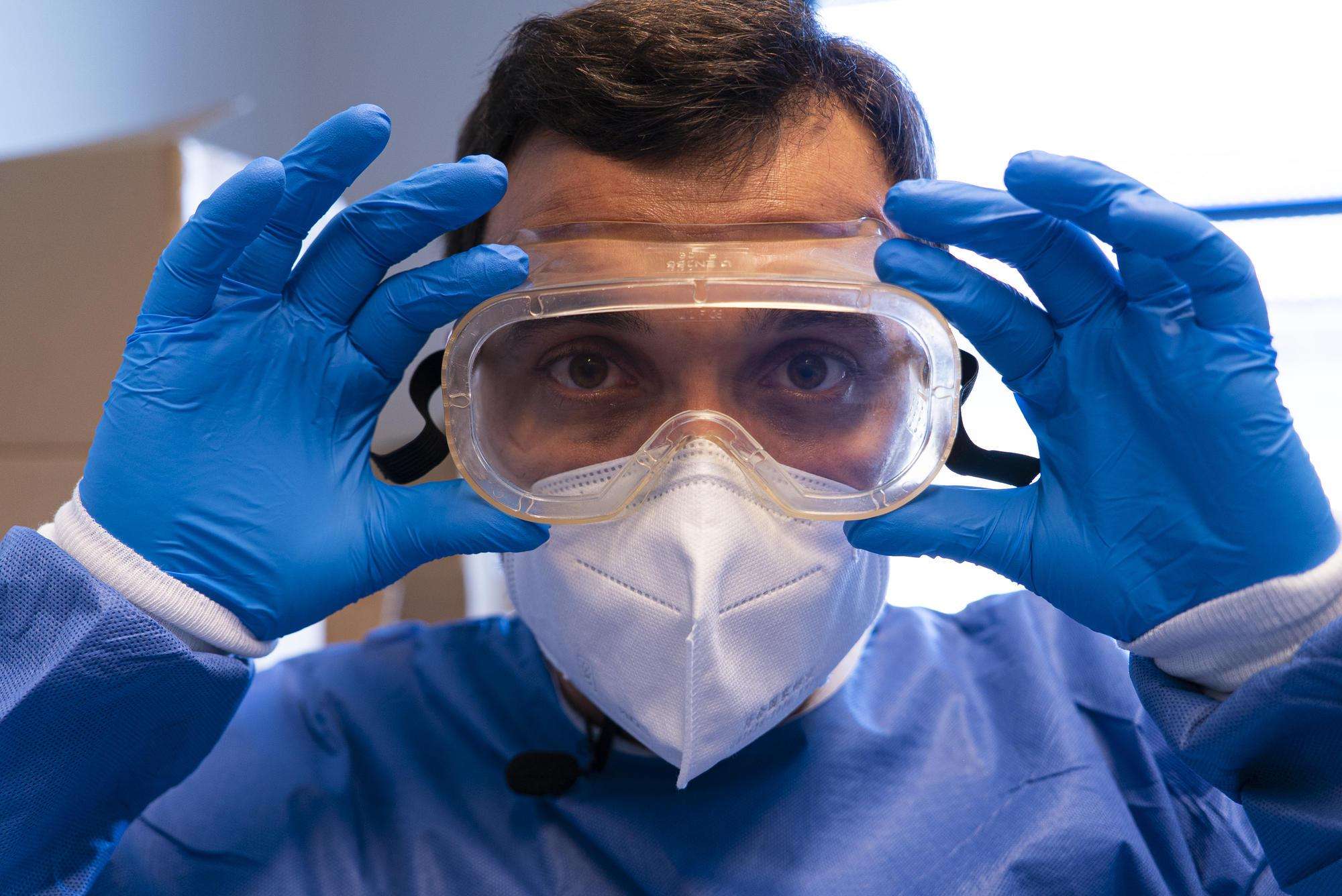One year ago today, on March 11, 2020, the World Health Organization declared the outbreak of COVID-19 a pandemic. At Doctors Without Borders/Médecins Sans Frontières (MSF), providing medical care during epidemics is at the core of what we do. But suddenly, we faced multiple challenges all at once across our projects in more than 70 countries. We had to find a way to respond to outbreaks of this new disease, while keeping our regular medical programs up and running, and reacting to other emergencies. Brice de le Vingne led MSF’s task force for COVID-19 in 2020 and now heads the emergency desk, which continues to run interventions to confront the pandemic. Here, he reflects on the evolution of this unprecedented global emergency.
In January 2020, MSF’s first COVID-19 project opened in Hong Kong, focusing on health education for vulnerable people, such as the elderly and those who are socioeconomically disadvantaged. By March, the epidemic was spreading like wildfire across Europe. MSF launched projects in some of the most severely affected countries, including Belgium, Spain, and Italy. We provided support to hospitals, sending in medical teams with experience responding to outbreaks of infectious diseases. We also did what we could to train our colleagues how to keep themselves safe, knowing how exposed health staff can be during outbreaks.
From March onward, as the epidemic continued to spread around the world, MSF followed in its tracks. We opened new projects and adapted existing ones, as we always do during epidemics, but this time on a global scale.
It’s not just the scale that was different. At the first sign of other epidemics, such as cholera or yellow fever, we increase the size of our teams in the area, send in our experts, and deliver tons of additional supplies. But as the coronavirus tightened its grip in more and more countries, many governments closed their borders. Moving medical staff and supplies to where they were needed became very challenging.
We also set up medical projects in places where we rarely work, such as the United States and several countries in Europe. We turned our attention to elderly people in nursing care homes, as their age and living environment made them extremely vulnerable to COVID-19.
But throughout this emergency, our medical rationale has not changed. Many of the people we have assisted are familiar to MSF: refugees and people on the move, people in rural areas with poor access to health care, neglected communities in cities.
In trying to help the people most in need, MSF has carried out a wide range of activities over the past 14 months, depending on what was most useful to local health systems. We have organized training sessions for frontline health staff, both in well-equipped hospitals in wealthy countries and in very basic facilities [in low-resource settings]. We supported them with infection prevention and control, disinfection, triage of patients, staff and patient flow.
We have cared for patients: the mildly sick, the severely sick, and the dying. In some places we have supported intensive care wards, in other places we ran them. We have distributed masks and taught people how to employ simple preventive measures to keep themselves safe, such as keeping a distance and washing their hands. We reached millions of people with these messages on social media. And we have provided many sessions of mental health care, mainly for staff on the frontlines of the pandemic.
Having been on the frontline of epidemics ourselves, we know firsthand how demanding, how exhausting, and how stressful this work can be. Many of the health workers who have labored so tirelessly over the past year had little or no previous experience responding to outbreaks of infectious diseases. No one had experience with COVID-19. Faced with a new and unknown disease, lacking the tools to treat patients, scared of being infected on the job, and passing the infection on to loved ones at home—this pandemic has been an enormous emotional burden for frontline health workers. We must take care of the people who take care of us.
One year after its official declaration, the pandemic has not faded away. Safe and effective vaccines for COVID-19 now exist, but for the vast majority of people around the world they are not yet available—and may not be for a long time. Often the people who fall through the cracks in the health care system are the very same people who will [miss out on access to] vaccination. Dedicated to help the most vulnerable, MSF’s role in this pandemic is not over yet.




